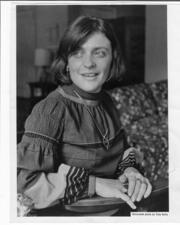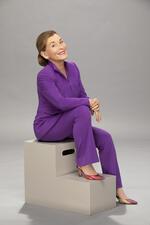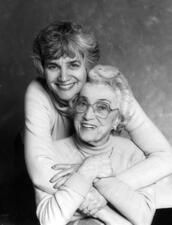Family: Motherhood

Sandy Sasso

Barbara Seaman
Muckraking journalist Barbara Seaman survived a tumultuous childhood in New York City to become a bestselling author, a prominent second wave feminist, and, as a founder of the women’s health movement, an architect of informed consent. A lifelong scourge to the pharmaceutical industry, Seaman exposed the dangers of the high-dose birth control pill, hormone replacement therapy, and male doctors’ hubris.

Judith Sheindlin
For two and half decades, former New York family court Judge Judith Sheindlin has riveted daytime viewers, racked up awards, and sold thousands of books to people hungry for the tough love of a tough Jewish mother. Millions of viewers who watch Judge Judy every day are treated to many Yiddish words and wisdom the jurist uses on a parade of deserving participants who enter her TV studio courtroom.
Solomon’s Judgment: Bible
In this story, King Solomon is asked to consider the case of two women who gave birth to sons but, due to the death of one of their children, are fighting over the remaining child. While the story is generally cited as an example of Solomon’s wisdom, this narrative also shows the possessiveness of maternal love.

Miriam Belsky Solotaroff
Jewish Gender Stereotypes in the United States
Stereotypes of Jews have existed from their arrival in the New World to the present. Jews were portrayed as greedy, unscrupulous, and unrefined. However, Jews also created stereotypes about one another based on class, gender, and religion. Specifically, the Ghetto Girl, Jewish Mother, JAP, and others reflected tensions between genders about the place of Jews in the economy and culture.
Elizabeth Stern
Two Prostitutes as Mothers: Midrash and Aggadah
Wise Woman of Tekoa: Bible
The midrash includes the wise woman from Tekoa among the twenty-three truly upright and righteous women who came out of Israel. The Rabbi’ note that because the residents of Tekoa frequently used olive oil, they were wise. The woman’s wisdom was therefore linked to the blessing of olive oil and, in the opinion of the Rabbis, reflected the wisdom of all the area’s inhabitants.


